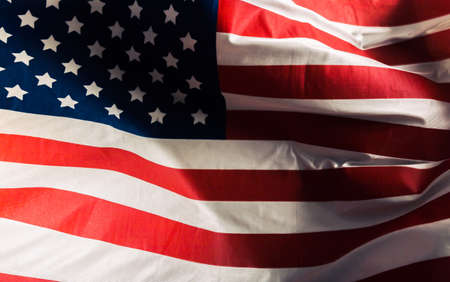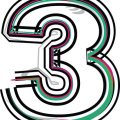1. Introduction to Name Numerology
Have you ever wondered if your name could reveal something special about your personality or future? In the United States, name numerology has fascinated people for generations, blending ancient ideas with a uniquely American sense of curiosity and self-discovery. At its core, name numerology is the belief that names carry hidden meanings through numbers, and these numbers can provide insights into personal destiny, talents, and even life’s challenges.
What Is Name Numerology?
Name numerology is the practice of assigning numbers to the letters in a person’s name using specific systems, most commonly the Pythagorean or Chaldean methods. Each letter corresponds to a number, and when these values are added together in certain ways, they reveal key numbers believed to influence one’s character and life path.
Basic Principles of Name Numerology
| Letter | Pythagorean Number Value |
|---|---|
| A, J, S | 1 |
| B, K, T | 2 |
| C, L, U | 3 |
| D, M, V | 4 |
| E, N, W | 5 |
| F, O, X | 6 |
| G, P, Y | 7 |
| H, Q, Z | 8 |
| I, R | 9 |
This table shows how each letter in the alphabet is matched with a number in the popular Pythagorean system. By adding up these values from your full name and reducing them to a single digit (or sometimes to “master numbers” like 11 or 22), people believe they can discover important aspects of their identity.
The American Curiosity: Why Did Name Numerology Catch On?
The appeal of name numerology in American culture goes beyond just numbers and letters. Americans have long been interested in tools that offer personal insight—whether it’s horoscopes, personality quizzes, or spiritual readings. Name numerology fits right into this tradition by promising a window into who we are and what our lives might hold. It encourages self-reflection and helps people feel a deeper connection to their own stories.
Main Reasons for Its Popularity in America:
- A desire for personal meaning and direction
- The search for self-improvement and growth
- An interest in mystical or spiritual traditions that offer guidance outside conventional religion or science
- The simplicity of calculating and interpreting name numbers makes it easy for anyone to try at home or with friends
Name numerology continues to be a fascinating way for many Americans to explore questions about fate, purpose, and identity—one number at a time.
2. Historical Roots and Global Influences
To truly understand how name numerology became popular in American culture, it’s important to look back at its global beginnings. Numerology didn’t just appear out of nowhere in the United States—it has a rich history that stretches across many ancient civilizations. Let’s explore how Greek, Hindu, and Hebrew traditions helped shape what would later become American name numerology.
Early Origins Around the World
The idea that numbers have a special meaning is not new. Ancient cultures believed that numbers could reveal secrets about people’s personalities, destinies, and even their names. Here’s a quick overview of some key influences:
| Tradition | Main Contributions to Numerology | Time Period |
|---|---|---|
| Greek (Pythagorean) | Pythagoras linked numbers with cosmic energy and developed systems to give letters numeric values. | 6th Century BCE |
| Hindu (Vedic) | Sanskrit texts included numerological ideas connecting numbers, names, and fate; used in naming rituals. | Ancient India (pre-5th Century CE) |
| Hebrew (Kabbalah) | Kabbalists used Gematria to find hidden meanings in Hebrew words by converting them into numbers. | Middle Ages |
Numerology’s Journey to America
As people migrated and shared knowledge, these numerological ideas traveled from one continent to another. European settlers brought Pythagorean methods with them to the United States during the 19th and early 20th centuries. In America, numerology began to blend with other spiritual practices, including those found in New Thought and metaphysical communities.
Pythagorean Influence on American Numerology
Pythagoras’ system is still the most common method used in the U.S. today for calculating the “number” of a name. This system assigns each letter a value from 1 to 9 and then combines those values to find a single-digit number that represents someone’s personality or destiny.
Example: Simple Name Calculation
| Letter | Value |
|---|---|
| A | 1 |
| L | 3 |
| I | 9 |
| C | 3 |
| E | 5 |
| Total: 21 → 2+1=3 | Name Number: 3 |
This simple approach made it easy for Americans to use numerology in daily life, especially when choosing baby names or business names.
![]()
3. Name Numerology’s Rise in American Popular Culture
Name numerology began to stand out in America during the 19th and 20th centuries, a period marked by rapid social change and a growing interest in self-discovery. The United States, with its unique blend of cultures and pioneering spirit, provided fertile ground for new ideas about identity and destiny. This was especially true as Americans sought ways to understand themselves outside traditional structures like religion or family heritage.
The Connection to Self-Help Movements
As self-help became a defining feature of American culture, name numerology found its place alongside other tools promising personal insight. Popular authors and motivational speakers started incorporating numerological concepts into books and seminars focused on unlocking potential or achieving success. People wanted practical strategies for self-improvement, and numerology—being easy to learn and apply—fit right in.
Numerology and Spiritualism
The spiritualist movement, which gained momentum in the late 1800s, also contributed to the popularity of name numerology. Spiritualists believed that numbers could reveal hidden truths about life, purpose, and even the afterlife. For many Americans, using numerology was an accessible way to tap into these mysteries without joining formal religious groups.
How Numerology Was Used in Everyday Life
| Era | Common Uses of Name Numerology |
|---|---|
| Late 1800s | Choosing baby names based on “lucky” numbers; seeking guidance from numerologists at spiritualist gatherings |
| Early 1900s | Incorporating numerology into business branding; selecting pen names for writers and performers |
| Mid 1900s | Self-help workshops; adding numerological advice columns to magazines; using numerology in matchmaking services |
The American Search for Individuality
Unlike many other cultures where names are chosen mostly for tradition or family reasons, Americans increasingly saw names—and their numerical values—as personal statements. Numerology offered a sense of control over one’s fate: if you didn’t like your destiny as written by your birth name, you could change it and start fresh. This idea resonated deeply with the American ethos of reinvention.
4. Modern Interpretations and Contemporary Trends
Name Numerology in Everyday American Life
In today’s America, name numerology has found new life and meaning. While some still see it as a mystical or spiritual practice, others view it as a fun way to gain personal insight or make important decisions. The modern approach is less about tradition and more about self-discovery, creativity, and even entertainment.
The Digital Transformation of Name Numerology
Technology has played a big role in bringing name numerology into the mainstream. Now, anyone can access name numerology calculators and personalized readings online or through mobile apps. These digital tools make it easy for people to explore the numbers behind their names with just a few clicks.
| Digital Platform | How It’s Used |
|---|---|
| Websites | Offer free or paid numerology reports based on names and birthdates |
| Mobile Apps | Provide quick daily numerology insights and compatibility checks |
| Social Media | Share viral quizzes and interactive content related to name meanings and numbers |
Integration into Wellness Culture
Name numerology is also becoming part of the broader American wellness movement. Many people look at their “name number” as a tool for self-care and mindfulness. Some yoga studios, life coaches, and holistic practitioners include numerology in their services, using it to encourage positive thinking and personal growth.
Ways Numerology Supports Wellness
- Helps with goal-setting by identifying personal strengths and challenges
- Promotes self-reflection by offering new perspectives on identity
- Adds an element of ritual or intention-setting to daily routines
Popularity Among Younger Generations
Younger Americans—especially Millennials and Gen Z—are driving the resurgence of name numerology. For them, it’s not just about superstition; it’s about self-expression and connecting with something bigger than themselves. Social media platforms like TikTok and Instagram are full of creators sharing tips, memes, and stories about how numerology fits into modern life.
5. Critiques and The Ongoing Debate
Name numerology has sparked plenty of discussion in American culture, especially when it comes to its legitimacy and usefulness. While some people find personal meaning in the numbers attached to their names, others remain highly skeptical. Lets take a closer look at the main criticisms and ongoing debates surrounding this topic.
Skepticism in American Society
Many Americans view name numerology as a fun or quirky tradition rather than a serious belief system. Skeptics often argue that there is no scientific evidence connecting a persons name or its numerical value to their destiny, personality, or life events. For some, numerology falls into the same category as horoscopes—interesting to read but not something to base important decisions on.
Common Criticisms
| Criticism | Description |
|---|---|
| Lack of Scientific Proof | No peer-reviewed studies support the claims made by numerologists. |
| Confirmation Bias | People tend to remember “hits” and ignore “misses” in numerological predictions. |
| Cultural Subjectivity | Different cultures have unique naming traditions, making universal rules unlikely. |
| Randomness of Names | Names are often chosen for personal or family reasons, not cosmic significance. |
The Scientific Perspective
From a scientific standpoint, researchers generally dismiss name numerology as pseudoscience. Scientists emphasize that there are no proven causal links between a persons name and their life outcomes. In fact, studies on similar practices—like astrology—have shown that any accuracy people feel is usually due to vague statements that could apply to anyone.
Why Do People Still Use Name Numerology?
Despite the criticisms, name numerology remains popular with many Americans who enjoy exploring new-age ideas. Some say it helps them reflect on personal goals or gives them a sense of identity. For these individuals, the value lies more in self-discovery than in hard evidence.
A Balanced Viewpoint
The debate over name numerology is likely to continue in American culture. While skeptics and scientists call for evidence and logic, believers focus on intuition and personal experience. Ultimately, the choice to embrace or reject name numerology depends on each individuals perspective and what they hope to gain from it.


